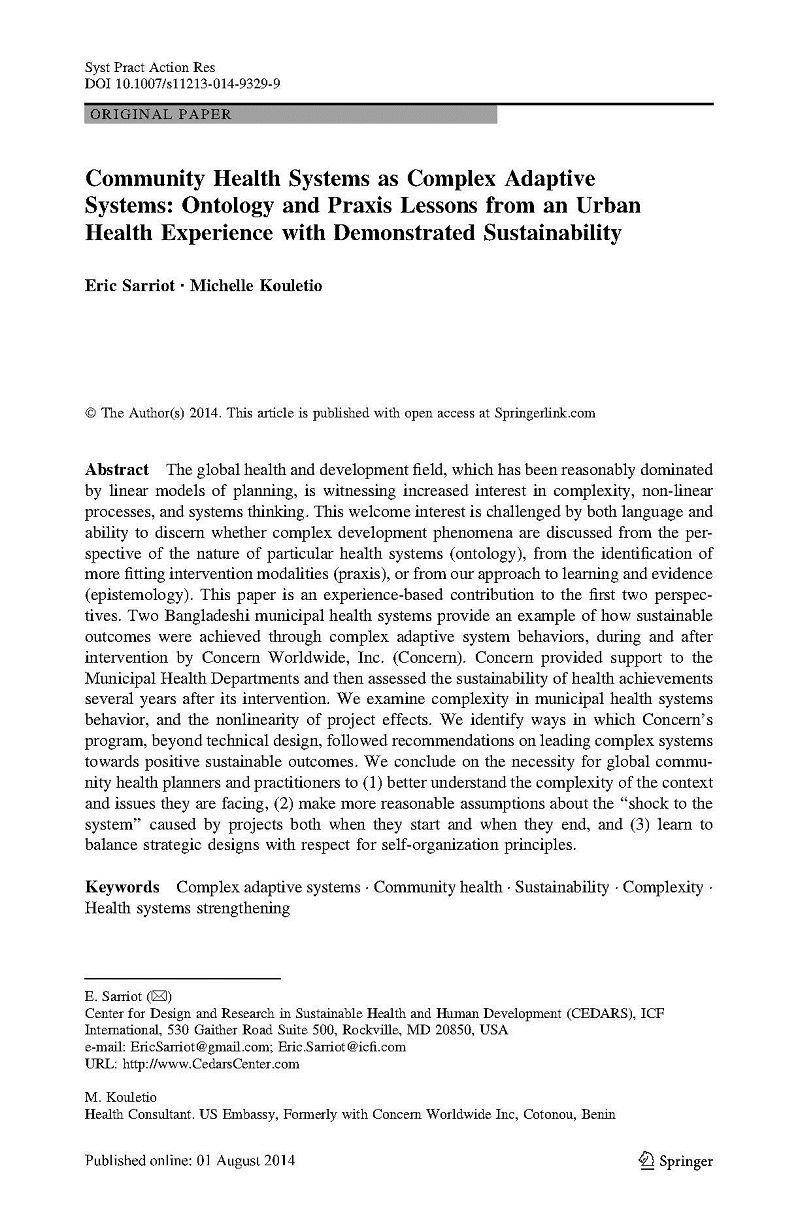Publish Date: August 2014
Author: Eric Sarriot, Michelle Kouletio
The global health and development field, which has been reasonably dominated by linear models of planning, is witnessing increased interest in complexity, non-linear processes, and systems thinking. This welcome interest is challenged by both language and ability to discern whether complex development phenomena are discussed from the perspective of the nature of particular health systems (ontology), from the identification of more fitting intervention modalities (praxis), or from our approach to learning and evidence (epistemology).
This MCSP co-authored paper, published in the journal Systemic Practice and Action Research, is an experience-based contribution to the first two perspectives. Two Bangladeshi municipal health systems provide an example of how sustainable outcomes were achieved through complex adaptive system behaviors, during and after intervention by Concern Worldwide, Inc. (Concern). Concern provided support to the Municipal Health Departments and then assessed the sustainability of health achievements several years after its intervention.
We examine complexity in municipal health systems behavior, and the non-linearity of project effects. We identify ways in which Concern’s program, beyond technical design, followed recommendations on leading complex systems towards positive sustainable outcomes. We conclude on the necessity for global community health planners and practitioners to: (1) better understand the complexity of the context and issues they are facing; (2) make more reasonable assumptions about the ‘‘shock to the system’’ caused by projects both when they start and when they end; and (3) learn to balance strategic designs with respect for self-organization principles.
To read the open access article, click here.

